Nutrition
Having a small, planned snack in the evenings is not such a bad thing- it can actually help you sleep better. Choosing the right snack is key to satisfying your hunger without giving you sleep-disturbing indigestion or morning bloat and regret. Here are my top five favorite evening snacks.
Remember to munch on them mindfully (I suggest turning the TV off while you nosh) and consuming them at least an hour before bedtime to prevent any stomach issues.
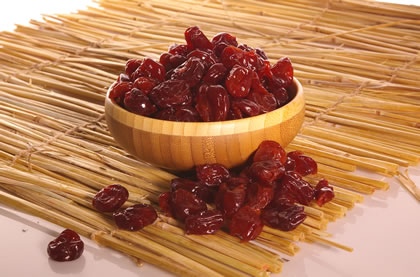
Dried Tart Cherries: Tart cherries contain melatonin, which is also known as the sleep-inducing hormone. Their sweet-tart flavor may satisfy your evening sweet tooth while giving you an antioxidant boost and possibly helping you catch some zzz’s. Just make sure to measure your portion and keep it to about a quarter cup serving to avoid a calorie overload.
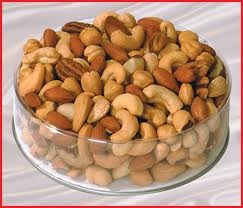
Nuts: Nuts are a great snack any time of day because their combination of protein and healthy fat helps quell hunger while providing plenty of nutrients. They are great to have in the evening as well because they will satisfy the urge for a crunchy snack and you don’t need to eat many to get that feel-full effect. Just a quarter cup serving will keep hunger at bay all night without leaving you with that stuffed feeling before bed or making you wake up bloated in the morning.
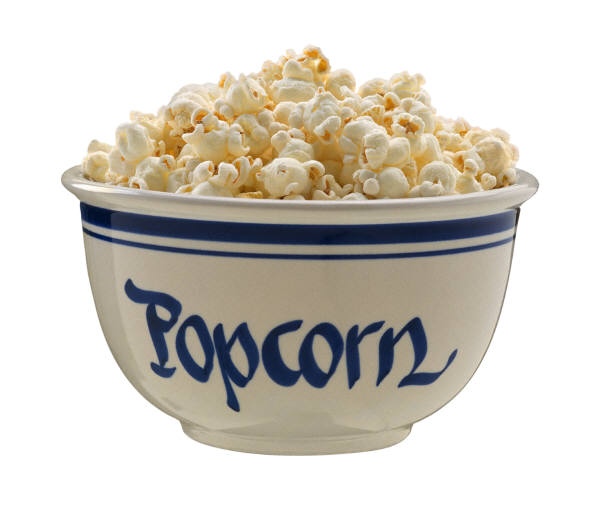
Popcorn: Popcorn is a complex carb, so it contains serotonin, which is a hormone that helps you relax. It’s a great snack to munch on in the evenings because you can have a lot of it (3 cups popped) for only 100 calories if you skip dousing it in butter. It’s great if you want an evening snack that will last longer than a couple of seconds. Plus, the fiber in it will help satisfy your hunger and ward off cravings.
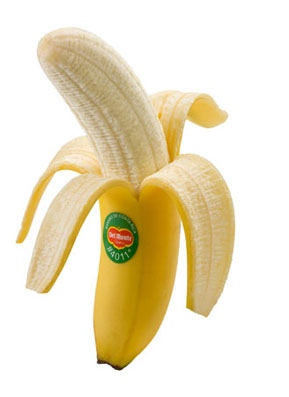
Banana: If you get an evening craving for something sweet with a soft, creamy texture, you won’t find a better bedtime snack than a banana. It’s also a natural source of melatonin and it’s a great snack for when you are feeling lazy because it doesn’t require any work to prepare. As an added bonus, the potassium in the banana may prevent you from waking up during the night with sore, cramping muscles after an intense workout.
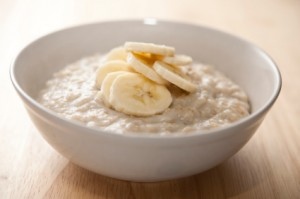
Oatmeal: If you love the feeling of going to bed with a full belly without being too full, try a small bowl of oats. The stick-to-your-ribs power of its high-fiber content coupled with the relaxing and satisfying effect of the carbohydrates makes it a perfect evening snack. To kick up the flavor, add a drizzle of honey and a sprinkle of cinnamon.
So whatever kind of snack you crave in the evenings- tart, chewy, crunchy, salty, sweet, creamy, or warm- there’s a perfect option for you that won’t keep you up all night or feeling guilty. Happy Snacking!
How Many Carbs Do We Need?
The Nutrition Recommendations for Canadians state that the diet should provide 55% of energy as carbohydrate from a variety of sources. For athletes, it is recommended that 60% of total energy come from carbohydrates. Endurance athletes like marathon runners and triathletes can require up to 70 per cent of their total calories from carbohydrates.
Without adequate dietary carbohydrates, the body inefficiently converts fat stores and proteins from muscles into energy. This can increase muscle breakdown during exercise and impact overall fitness. It’s a good thing there are abundant food sources of carbohydrates, including fruits, vegetables, grain products, and milk products!
Timing is Important
For athletes with a busy and rigorous training schedule, finding sources of carbohydrates to snack on before, during, and after exercise is essential to maintain muscle glycogen and to sustain optimal energy levels.
Before: Carbohydrates consumed before exercise top up energy stores and delay fatigue. What you eat depends on how much time you have, but aim for a light carbohydrate meal. My favorites include half a bagel with nut butter, fruit and yogurt, oatmeal with dried fruit, or a fruit smoothie.
During: Carbohydrates help to maintain blood sugar to fuel muscles during exercise. If your training session lasts longer than 90 minutes you will need additional carbohydrates to maintain energy levels. Go for easy to digest carbohydrates and aim for 25-50 g of liquid or solid sources every 30 minutes. Sports drinks and sports gels work well. Other energy boosters include dried fruit, cereal bars, or a peanut butter and jam sandwich.
After: Quick replenishment of your energy supply after exercise helps guarantee the ability to last longer in the next exercise event. For continued success in future training sessions or events, consume a source of carbohydrates and protein within 30 minutes of completing your training session to optimize glycogen stores. Stellar recovery snacks include trail mix, carbohydrate-based sports bars, and yogurt.
The Bottom line
Whether you are a weekend athlete or you rank among the elite, remember that maintaining a high energy level is the key to peak performance. For this reason, carbohydrates are your best friend!
The Role of Carbohydrates: Carbohydrates are the body’s favorite fuel. They are the first energy source the body uses to perform daily tasks, especially exercise.
Carbohydrates are unique because when cells have enough energy obtained from carbohydrates, any excess is stored as glycogen in the muscles and liver to be used as a reserve. However, during strenuous exercise, energy reserves can quickly drain, leaving muscles tapped and dependant on carbohydrate replacement. That’s why a diet high in carbohydrates is particularly important for the athlete.
Top 5 Superfoods for Athletes
1.Oatmeal
Oatmeal is a heart-healthy whole grain that contains valuable soluble fiber to help soak up unwanted fat and cholesterol in the bloodstream. But perhaps even more important, it’s packed full of good carbohydrates – the most critical energy source for athletes. Oatmeal maintains your energy for a longer period of time during your workout and curbs appetite by slowing the absorption of glucose into your bloodstream. Oats are also a good source of B vitamins, important for athletes as a source of energy.
Quick & Healthy: Mix plain oatmeal with milk and add a handful of nuts or seeds and dried or fresh fruit. Toss it in the microwave and cool off with a splash of milk before eating.
2.Yogurt
Yogurt is a well-known source of calcium, which supports healthy bones and reduces the risk of osteoporosis. But did you know that calcium also plays a role in muscle metabolism? If you’re feeling zapped of energy during your workout, consider looking at your intake of calcium to see if you are meeting the recommended levels. If not, try adding some yogurt to your breakfast, lunch, or snack. Rich in Vitamin B-12, this super food also helps athletes prevent fatigue. Check out our yogurt GoUnDiet Interactive Review Tool to find the right yogurt for you.
Quick & Healthy: Sweeten plain yogurt with your favorite fruit and top with nuts and seeds for a quick snack before or after your workout.
3.Blueberries
This miniature super fruit is chock-a-block full of nutrients and is the star of the show when it comes to antioxidant properties. Antioxidants can help to reduce oxidative damage to cells resulting from free radicals produced during periods of strenuous activity. Nutrients in blueberries may also promote healthy blood pressure. These super foods contain Vitamin C to support your immune system, and are a source of energy-enhancing carbohydrates and fiber to help sustain your energy and keep you in the game.
Quick & Healthy: Blend fresh or frozen berries into your favorite smoothie or top up your morning breakfast cereal with these tiny burst of nutrition.
4.Sweet Potatoes
Sweet Potatoes may not be your typical vegetable of choice for dinner, but you might want to start making these nutrient-dense super foods a staple after you hear what they has to offer. Sweet potatoes contain more of the antioxidant beta carotene than any other fruit or vegetable. They are also a source of Vitamin C and one of the only fat-free sources of Vitamin E. Of course, Vitamins C and E both have antioxidant properties and aid in muscle recovery among athletes. Last, but not least, sweet potatoes are an excellent source of iron, which is important in oxygen production for athletes during a workout. Click here for a complete list of iron rich foods.
Quick & Healthy: Bake, grill or microwave these nutritious super foods. My favorite way to prepare them is by making sweet potato fries. To do this, cut them in to thin slices, place on a baking sheet, drizzle with a little bit of olive oil and garlic and roast them in the oven.
5.Salmon
Salmon is a source of high-quality protein, iron, and Vitamin B12 – which is important for optimal athletic performance. It also contains omega 3 fatty acids. The nutritional fats found in salmon have been shown in epidemiological and clinical trials to reduce the incidence of heart disease. Recent studies have also indicated that omega 3 fatty acids may be beneficial to intestinal health. In addition, omega 3 fatty acids may have anti-inflammatory effects, protecting against conditions such as arthritis. It’s no wonder salmon and other fatty fish have been touted as super foods! Click here to look for other high-protein foods.
Quick & Healthy: Consider fish a healthy fast food that can be a beneficial addition to your meal in just 10-15 minutes by poaching, baking, grilling or microwaving it with your favorite herb. Add canned salmon to your sandwich or salad for a nutrient dense recovery meal.
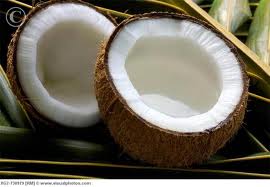 ……… is an excellent source of minerals and contains vitamins in moderate amounts. One of the most important benefits of coconut milk is its ability to boost the immune system.Â
……… is an excellent source of minerals and contains vitamins in moderate amounts. One of the most important benefits of coconut milk is its ability to boost the immune system.Â
   Here are some nutritional facts of one cup of coconut milk:
Â
- CALCIUM :Â 38.4 mg – promotes healthy bones and teeth
Â
- MAGNESIUM: 89 mg – maintaining normal blood pressure levels and alleviating muscle stiffness. Also decreases the risk of cardiovascular ailments such as heart attacks.
Â
- POTASSIUM and PHOSPHORUS:Â 631 mg potassium and 240 mg phosphorus – enhance your energy level, healthy development of bone structure and ensuring optimal functioning of the kidneys.
Â
- OTHER MINERALS:Â Manganese 2.2 mg, Copper 0.6 mg, and Zinc 1.6 mg.
Â
- VITAMINS:Â Vitamin C 6.7 mg and Vitamin EÂ 0.4 mg
Â
- CARBOHYDRATES:Â contains only 13.3 g per cup of coconut milk
Â
- SUGARS: just 8 g per cup
Â
- FATS: contains high amount of saturated fats (approx. 50 g per cup) However, the saturated fat content in coconut oil does not necessarily cause weight gain, as metabolism of fat is converted into energy and the fat does not get stored in the body. Daily exercise can help to get rid of excess fat too. Coconut milk also contains healthy fats (omega 6 essential fatty acids) that promote overall health.
Â
- LAURIC ACID:Â important fatty acid useful to prevent blockages in arteries, thus keeping the heart healthy.
Â
- CALORIES: 553 . It is a bit high, so consume in small amounts.
Â
 Vitamin D is a fat-soluble vitamin needed in bone formation, insulin regulation, muscle function, immune health, and the balance of phosphorus and calcium in the body. Adults should take in 600 IU of vitamin D every day.
Vitamin D is a fat-soluble vitamin needed in bone formation, insulin regulation, muscle function, immune health, and the balance of phosphorus and calcium in the body. Adults should take in 600 IU of vitamin D every day.
Eat foods rich in vitamin D, such as shrimp, eggs and salmon.
Because natural food sources of vitamin D are rare, choose fortified versions of orange juice, butter substitute, yogurts, cereals and milk.
Magnesium, vitamin A, vitamin K, zinc and boron are all necessary to bring up levels of vitamin D. Magnesium has the greatest effect on vitamin D, so include nuts, beans and fish in yours daily diet.
Spend about 15-20 minutes of sun exposure daily can prevent vitamin D deficiency in most people. Those with darker skin tones might require more time in the sun.
Take a vitamin D supplement if your food sources of vitamin are insufficient or if you are unable to spend time outdoors.
Consult your doctor or pharmacist about medications that may interfere with your body’s ability to absorb or use vitamin D. eg. Anticonvulsants, corticosteroids, hormone replacement drugs, and anticoagulants.
Vitamin D3 supplements are better metabolized than other forms of vitamin D.











